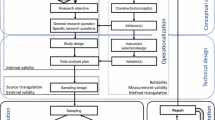Abstract
Engineers maintaining high level of ethical standards is important to society and to the respective profession. We serve as the technical experts on behalf of society and with that role comes significant responsibilities. There are many causes for engineers to make unethical decisions, i.e., placing profit above protection of the public. Such reasons, for example, overbooked schedules, the unethical conduct of business associates, doing the “right thing” would cause a lot of trouble, and the pursuit of fame and fortune above all, etc. There are some common ethical dilemmas that new professionals may face: the acceptance of gifts from vendors or contractors, the billing of labor hours to unrelated project, and the inadequate reviewing of design work. New professions may lack the experience and abilities to successfully handle ethical dilemmas early in their careers. Mentoring new professionals, related to ethical standards may have a long-lasting effect on individuals who are new in the engineering profession. Experienced engineers bring vast knowledge in discussions on how to resolve ethical dilemmas. A key aspect to being a successful mentor is to thoroughly understand the Code of Ethics. If an engineer’s decision are highly supported by the Code of Ethics then it is much more likely that his(her) conduct will be more appropriate and acceptable.





Similar content being viewed by others
References
American Society of Civil Engineers (2008) Civil engineering body of knowledge for the 21st century. Preparing the Civil Engineer for the Future. 2nd Edition. ISBN-13: 978-0-7844-0965-7
He S, Hipel KW, Marc KD (2014) Water diversion conflicts in China: a hierarchical perspective. Water Resourc Manage 28:1823–1837
Jubeh, Ghadeer, Mimi, Ziad (2012) Governance and climate vulnerability index. Water Resourc Manage. Published online 27 September 2012
Knieper C, Pahl-Wostl C (2016) A comparative analysis of water governance, water management, and Environmental performance in river basins. Water Resourc Manage 30:2161–2177
Koop SHA, van Leeuwen CJ (2015) Application of the improved City blueprint framework in 45 municipalities and regions. Water Resourc Manage 29:4629–4647
National Center for Women & Information Technology (2016) Anita Borg Institute for Women in Technology. Mentoring Basics - A Mentor’s Guide to Success. https://www.bc.edu/content/dam/files/centers/cwf/individuals/pdf/MentorGuide.pdf
Starrett, S.K., C. Bertha, and A. Lara (2017) Engineering ethics: real world case studies. Am Soc Civ Eng. Reston, Virginia. ISBN 978-07-8441-467-5
UNESCO Bangkok (2011) Water ethics and water resources management. ISBN 978-92-9223-359-4. Editor Darryle RJ Macer
Vesilind AP (1995) Evolution of the American Society of Civil Engineers Code of Ethics. J Prof Issues Eng Educ Pract 121(1). doi:10.1061/(ASCE)1052-3928(1995)121:1(4)
Author information
Authors and Affiliations
Corresponding author
Additional information
2017 President of American Society of Civil Engineers - Environmental and Water Resources Institute
Rights and permissions
About this article
Cite this article
Starrett, S.K. Mentoring New Water Resources Professionals on Engineering Ethics. Water Resour Manage 31, 3271–3285 (2017). https://doi.org/10.1007/s11269-017-1633-6
Received:
Accepted:
Published:
Issue Date:
DOI: https://doi.org/10.1007/s11269-017-1633-6




